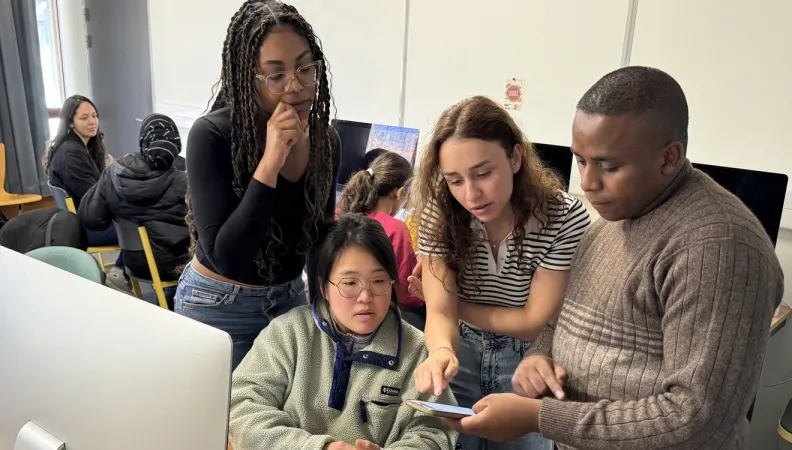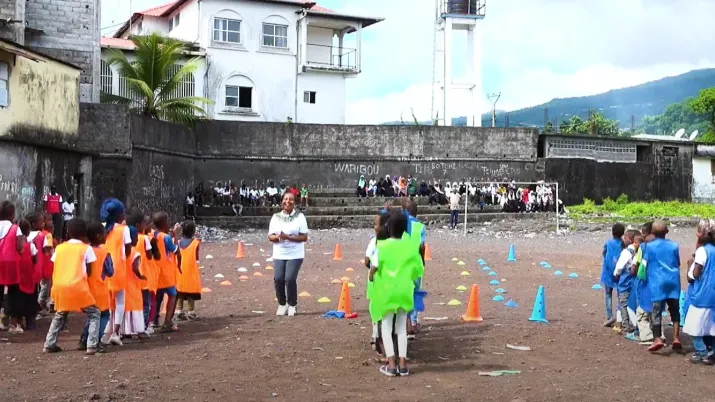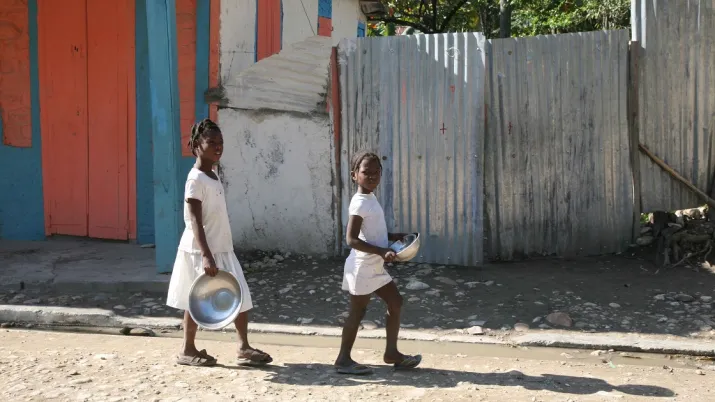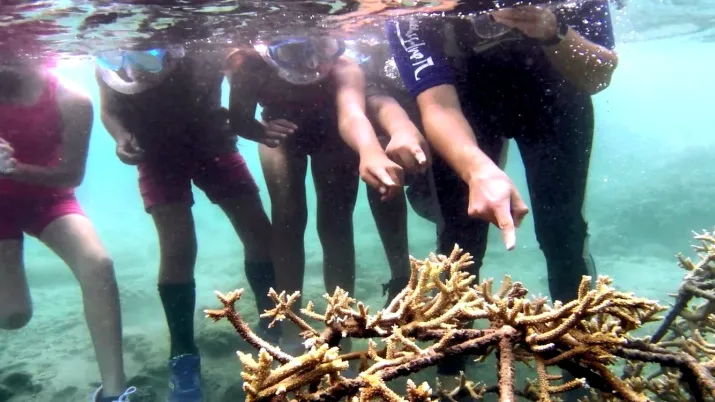Share the page
MadAtlas: a mutually enriching Madagascar-France double degree
Published on

Winner of the first edition of the Academia Partnership Africa-France Program, the MadAtlas project gives students from the University of Fianarantsoa in Madagascar and Gustave Eiffel University in France the chance to obtain a double degree and, with it, international experience and enriching educational exchanges.
Backed by the Academia Partnerships Africa-France program, MadAtlas is a project jointly led by the University of Fianarantsoa (UF) in Madagascar and Gustave Eiffel University (GEU) in France. Launched in 2021, it reinforces training for students, teachers, researchers and professionals in the domain of digital cartography – an essential tool for fields such as sustainable regional development (road maintenance, climate hazards, social inequalities, etc.) and digital media, which make heavy use of interactive multimedia maps.
In rolling out this project, the partner universities benefit from a mutual learning process and contribute to developing the skills needed for tomorrow’s jobs. As a result, right at the outset of MadAtlas, they created a double degree pathway between two of their master’s degrees: the “Information, Communication, Multimedia – ICM” master’s at UF and the “Web Cultures and Expertise – CMW” master’s at GEU. Sophie Moreau, geographer and MadAtlas coordinator, talks about her experience with this ambitious project.
Why choose to launch a double degree?
The CMW and ICM double degree for their master’s programs was set up as soon as we realized that their contents were very similar and allowed for cross connections. The double-degree program is a key asset for both universities: it boosts the appeal not only of the master’s degrees but also of the two institutions as a whole. Many students find the international academic and professional experience very interesting. In addition to obtaining two diplomas in two countries, they can take advantage of mobility schemes including an internship or apprenticeship abroad. The double degree is also enriching for faculty, as it leads to pedagogical exchanges between the universities. To enhance their courses, the teachers in both master’s programmes share their methods and content. For some specialties, they even go to teach at the partner university, sometimes as a duo with their counterparts. Two Malagasy teachers are currently at GEU under this scheme.
Concretely, how does this double degree work?
Double-degree students work on and validate their master’s 1 (degree after 1 year of master’s studies) at their home university and their master’s 2 (degree after 2 years of master’s studies) at the partner university. French students leave for Madagascar at the end of August and kick off with a 6-month internship, and then until July they follow the curriculum for the “Information, Communication, Multimedia” master’s 2. The Malagasy students attend work/study courses in France from September to August, as the Gustave Eiffel University master’s program involves in-company apprenticeship.
Admission to the double-degree program is carried out on a selective basis by both universities. On top of checking skill levels, a strong emphasis is placed on how students see themselves living abroad, how they understand the professional environment, and how they anticipate possible difficulties. To validate their enrollment, they need to have found their internship or apprenticeship contract – for the Malagasy students, the apprenticeship provides a crucial resource for financing their study year in France. Four Malagasy students and one French student are on this scheme for 2024/2025, and we plan to have the same quota for next year.
What were the challenges in setting up this double-degree program?
It was relatively easy given the similarity between syllabuses. The homogeneity and consistency of the two training programs were ensured through course equivalency and a few dispensations. We also took advantage of the experience of Gustave Eiffel University’s “Web Cultures and Professions” teams, who had already created a double-degree program with South Korea in 2015. The main challenge was to help the Malagasy students based in Madagascar find an apprenticeship in France. In fact, GEU’s head of apprenticeships is currently at the University of Fianarantsoa to present to faculty and students French entrepreneurship, the type of companies to contact and the skills that firms consider valuable. We are also creating a network of partner companies in France and Madagascar.
Have you any advice to give to anyone wanting to create an international double degree?
The technical and administrative side of managing mobility and programs should not be underestimated. Internationalizing a training program through double degrees was totally new for the University of Fianarantsoa, and these steps require a considerable amount of work. I’d also add that you must keep in mind that a double degree needs adjusting every year to better foresee the problems that students can come up against in their daily life, their studies and their professional experiences.
The MadAtlas project is led in partnership with the Bordeaux Montaigne University and IRD.
Further reading
Polynesia: Preparing Future Generations for Climate Change with Educational Marine Areas
Published on July 12, 2023



